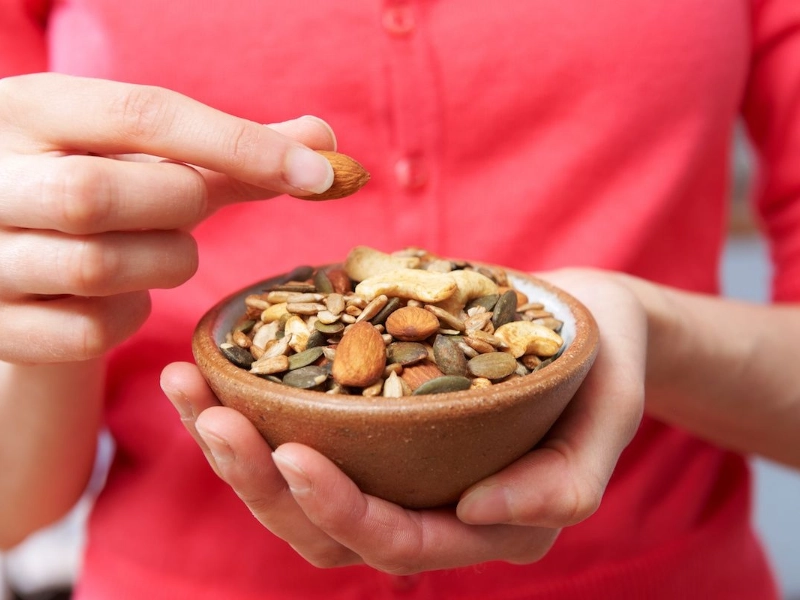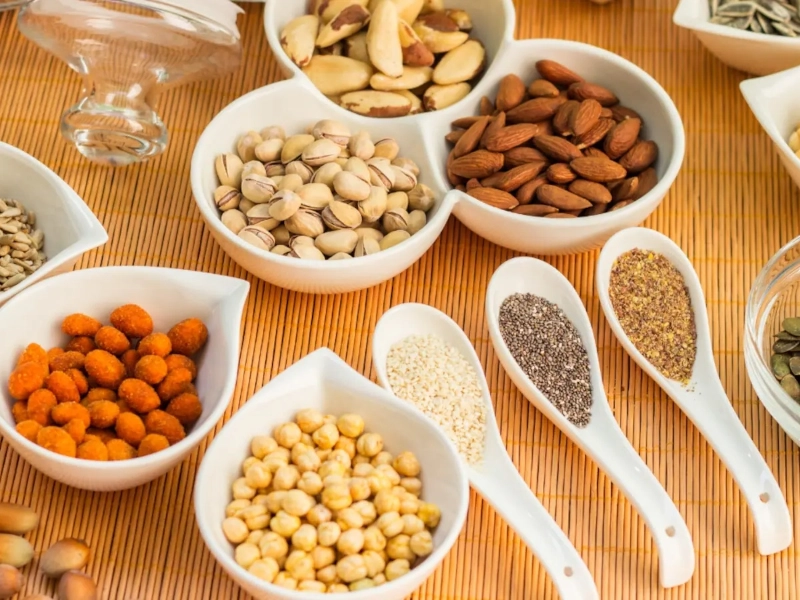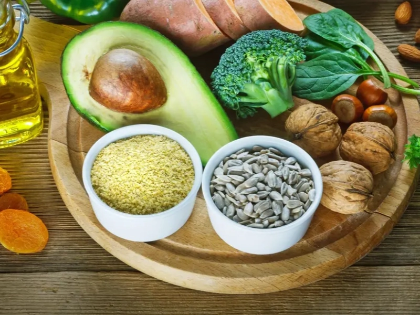The Anti-Inflammatory Properties of Regular Nut Consumption
1.Managing Inflammation: Understanding Natural reaction of the immune system to damage or infection is inflammation. Although it is quite important for healing, persistent inflammation can cause heart disease, diabetes, and autoimmune diseases among other health problems. Promoting general health depends on knowing dietary elements that might help control inflammation. One such element is nuts, which abound in nutrients capable of influencing body inflammatory processes.
2.Nutritional Composition of Nuts Rich in vital minerals, vitamins, good fats, protein, and fiber, nuts include almonds, walnuts, hazelnuts, and pistachios are Their monounsaturated and polyunsaturated fats—which are well-known for their heart-healthy qualities—have Furthermore plentiful in antioxidants, vitamins E and B6, magnesium, and zinc, nuts help to explain their anti-inflammatory properties. This special nutritional profile makes nuts a great addition to a balanced diet meant to lower inflammation.

 5.Fiber and Gut Integrity Another crucial element of nuts that helps against inflammation is dietary fiber. By encouraging the development of helpful intestinal bacteria, fiber helps to maintain gut health. Because it controls immune responses and guards against inflammatory disorders, a good gut microbiota is connected to lower inflammation. Given their rich supply of both soluble and insoluble fiber, nuts help to preserve a balanced intestinal environment, therefore boosting general health and lowering inflammation.
6.Studies Indicating Nut Consumption Many investigations have looked at how nut intake relates to inflammation. Regular nut eaters have often showed reduced levels of inflammatory markers in their blood, including C-reactive protein (CRP) and interleukin-6 (IL-6). For instance, those who ate nuts daily had noticeably lower levels of these inflammatory markers than those who omitted nuts from their diet, according to a study written up in the journal "Nutrition." These results show the possibilities of nuts as a dietary approach to control inflammation.
5.Fiber and Gut Integrity Another crucial element of nuts that helps against inflammation is dietary fiber. By encouraging the development of helpful intestinal bacteria, fiber helps to maintain gut health. Because it controls immune responses and guards against inflammatory disorders, a good gut microbiota is connected to lower inflammation. Given their rich supply of both soluble and insoluble fiber, nuts help to preserve a balanced intestinal environment, therefore boosting general health and lowering inflammation.
6.Studies Indicating Nut Consumption Many investigations have looked at how nut intake relates to inflammation. Regular nut eaters have often showed reduced levels of inflammatory markers in their blood, including C-reactive protein (CRP) and interleukin-6 (IL-6). For instance, those who ate nuts daily had noticeably lower levels of these inflammatory markers than those who omitted nuts from their diet, according to a study written up in the journal "Nutrition." These results show the possibilities of nuts as a dietary approach to control inflammation.
 7.Particular nuts and their advantages Regarding anti-inflammatory effects, different kinds of nuts have special advantages. For example, walnuts are very heavy in alpha-linolenic acid (ALA), a plant-based omega-3 fatty acid found to lower inflammation. Rich in vitamin E, almonds have antioxidant qualities meant to fight oxidative stress. An outstanding source of selenium, a mineral that helps to lower inflammation, are Brazil nuts. Including different nuts in your diet can help you to maximize the anti-inflammatory properties.
8.Useful Strategies for Including Nuts Including nuts into your everyday diet is simple and flexible. They're great as a snack, toss them into salads, mix into smoothies, or top yogurt and porridge. As a basis for nut butters or in baking, nuts are also quite versatile. To get the anti-inflammatory advantages from nuts, try to eat a little handful every day. Moderation is important, though, since nuts pack calories.
7.Particular nuts and their advantages Regarding anti-inflammatory effects, different kinds of nuts have special advantages. For example, walnuts are very heavy in alpha-linolenic acid (ALA), a plant-based omega-3 fatty acid found to lower inflammation. Rich in vitamin E, almonds have antioxidant qualities meant to fight oxidative stress. An outstanding source of selenium, a mineral that helps to lower inflammation, are Brazil nuts. Including different nuts in your diet can help you to maximize the anti-inflammatory properties.
8.Useful Strategies for Including Nuts Including nuts into your everyday diet is simple and flexible. They're great as a snack, toss them into salads, mix into smoothies, or top yogurt and porridge. As a basis for nut butters or in baking, nuts are also quite versatile. To get the anti-inflammatory advantages from nuts, try to eat a little handful every day. Moderation is important, though, since nuts pack calories.
 9.Environmental Elements and Inflammation Although controlling inflammation mostly depends on nut intake, other lifestyle choices also matter. Reducing persistent inflammation depends critically on regular physical exercise, enough sleep, and stress management. Combining a diet high in nuts with a good lifestyle can have a synergistic impact, thereby improving the capacity of your body to fight inflammation.
10.Synopsis of Nut Consumption Benefits Frequent nut intake provides many anti-inflammatory effects that can help general health. Their unusual nutritional composition, high in fiber, antioxidants, and good fats, helps the body to control inflammation. Including a range of nuts in your diet will help you to improve your health and lower your risk of chronic inflammatory disorders. A straightforward but effective first step in reaching ideal health and well-being is including nuts into a balanced diet.
9.Environmental Elements and Inflammation Although controlling inflammation mostly depends on nut intake, other lifestyle choices also matter. Reducing persistent inflammation depends critically on regular physical exercise, enough sleep, and stress management. Combining a diet high in nuts with a good lifestyle can have a synergistic impact, thereby improving the capacity of your body to fight inflammation.
10.Synopsis of Nut Consumption Benefits Frequent nut intake provides many anti-inflammatory effects that can help general health. Their unusual nutritional composition, high in fiber, antioxidants, and good fats, helps the body to control inflammation. Including a range of nuts in your diet will help you to improve your health and lower your risk of chronic inflammatory disorders. A straightforward but effective first step in reaching ideal health and well-being is including nuts into a balanced diet.








